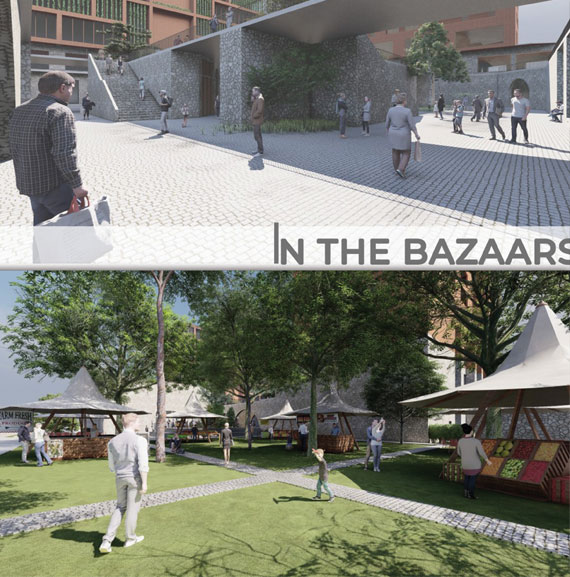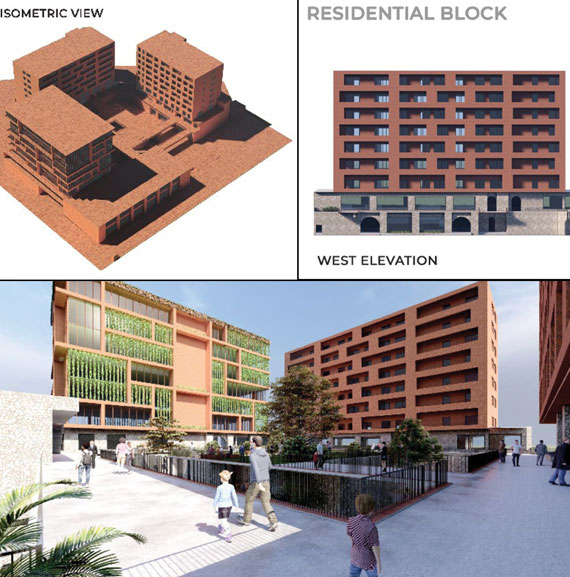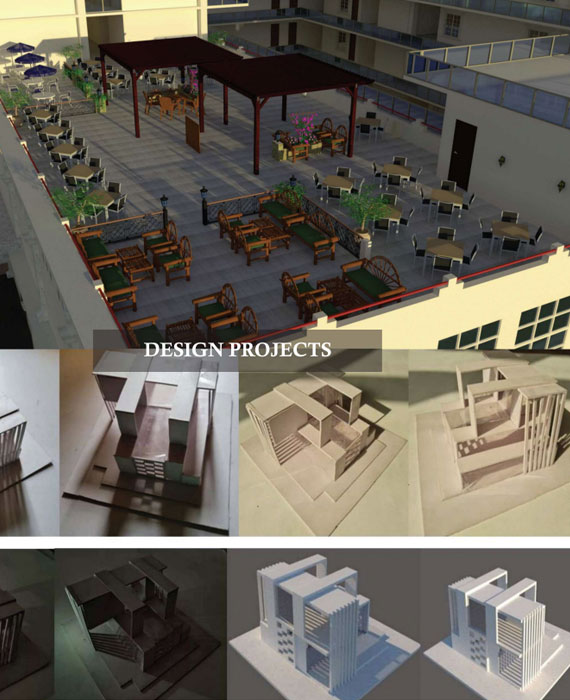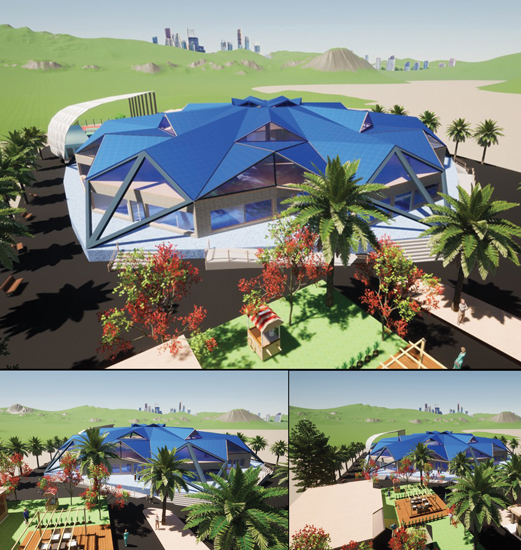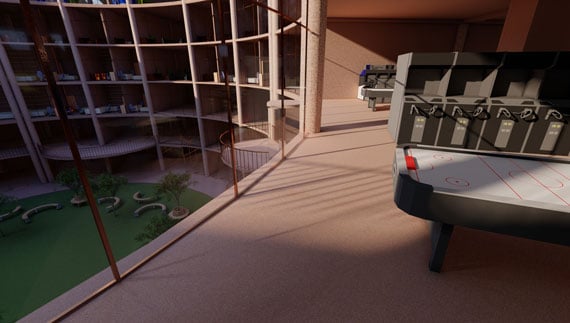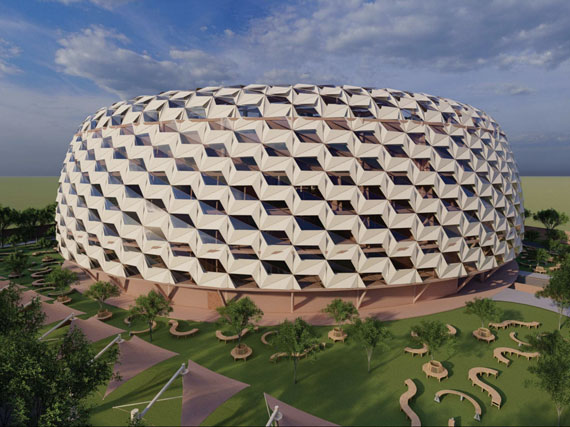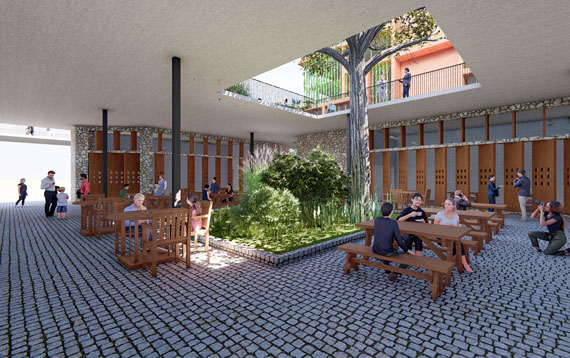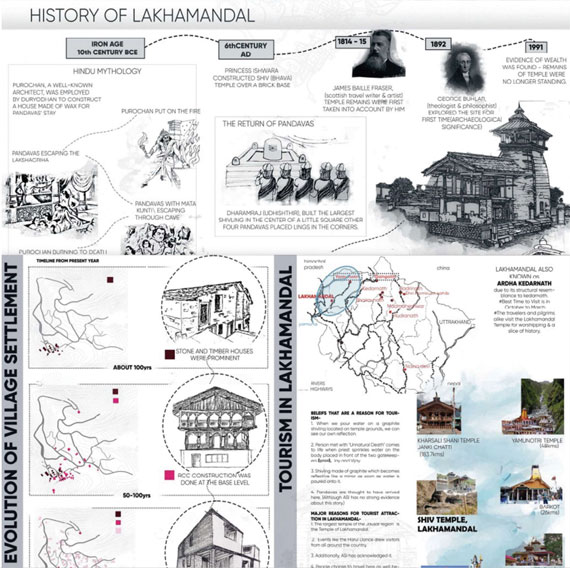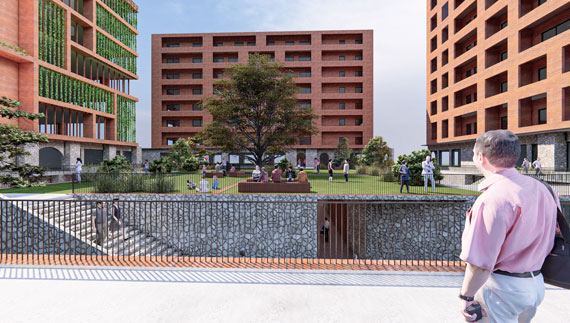OR
Architecture is the art and science of designing and constructing buildings, structures, and other physical environments. The history of architecture dates back thousands of years, to the earliest human settlements and structures built for worship, defence, and shelter.
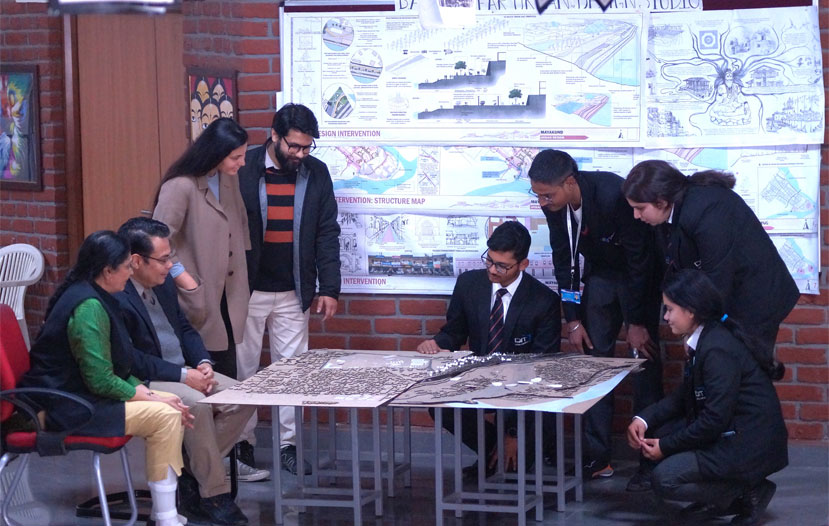
Over time, architects developed new techniques, materials, and styles that reflected changing social, cultural, and economic conditions. From the soaring cathedrals of medieval Europe to the sleek skyscrapers of modern cities, architecture has played a key role in shaping the built environment and the way we experience the world around us.
Today, architecture encompasses a wide range of practices, including residential, commercial, and institutional design, along with urban planning, landscape architecture, and sustainable design. Architects work on projects of all sizes and scales, from single-family homes to large public buildings and infrastructure projects. In addition to their design work, architects must also be knowledgeable about building codes, zoning regulations, and other legal requirements that govern construction projects.
Architecture education is not merely about mastering design principles, but it also plays a pivotal role in fostering creativity and instilling confidence in students to take calculated risks in creating enduring and impactful designs. The School of Architecture, Planning & Design at DIT University is ranked No. 1 among top private architecture institutes in uttarakhand by outlook rankings 2023. The University's Bachelor of Architecture (B. Arch) program is a much-sought-after course that churns out highly skilled professionals equipped with an elevated degree of creative confidence, enabling them to craft ecologically sustainable, resilient, prosperous, fair, healthy, and aesthetically-pleasing environments.
We perceive architectural education to be a dynamic and ever-evolving link that bridges the gap between nature, society, and technology. Our objective is to provide our students with trailblazing technologies and new ways of handling them sustainably. Our architecture college in Dehradun is nestled amidst nature's tranquillity. As the best B. Arch college in Uttarakhand we are committed to proactively promoting sustainable and appropriate architecture. We are passionately focused on nurturing our students and encouraging them to create architecture that seamlessly blends with the natural environment while reflecting the societal context in which it operates.
The B. Arch program at DIT University is an all-encompassing, rigorous curriculum that seamlessly integrates both theory and practice. Students are exposed to a plethora of design and planning studios that provide them with a comprehensive understanding of the built environment. They are also encouraged to explore their creative instincts and experiment with novel ideas, thereby giving them the freedom to push boundaries and devise innovative designs.
DIT University's School of Architecture, Planning & Design is undoubtedly one of the best BArch colleges in Dehradun and a preferred choice for students looking to pursue architecture in Uttarakhand. Our relentless focus on sustainability, innovation, and creativity has earned us a reputation for producing successful graduates who are capable of creating beautiful and functional designs that resonate with the natural environment and reflect the needs of society.
1st Year (2023-24)
| Particulars | Tuition Fees | Academic Services Fee | Total Fee | |
|---|---|---|---|---|
|
All India Category |
1st Installment |
74,750 |
46,500 |
121,250 |
|
2nd Installment |
74,750 |
46,500 |
121,250 |
|
|
Uttarakhand/Himalayan State Quota (After 26% Scholarship on Tution Fee) |
1st Installment |
55,315 |
46,500 |
101,815 |
|
2nd Installment |
55,315 |
46,500 |
101,815 |
For detailed Program Fee Structure, please Click Here
Our constantly evolving syllabus includes a large basket of electives (Fully Flexible Choice Based Credit System) over and above the core subjects with an inter-disciplinary approach to meet the demands and trends of the industry and to minimize the gaps between industry and education.
Highly experienced (nationally and internationally), skilled and energetic faculty from varied areas of specialization are onboard who impart their invaluable knowledge and experience.
Training workshops are conducted for students to provide hands on experience on latest design software like REVIT, Sketch up, AutoCAD, Illustrator, Grasshopper and Rhino etc.
Guest lectures are regularly conducted by renowned academicians and eminent architects.
Students are encouraged to participate in various architectural competitions hosted by NASA and Zonal NASA.
Students are encouraged to become entrepreneurs. They organize Diwali Exhibitions every year and make products from recyclable material based on 3R’s (Reduce, Reuse, Recycle). The products are put on sale and the funds collected are donated for a social cause their choice.
Graduates will be able to apply the knowledge in the field of architecture to pursue higher studies and career in architecture consultancy.
Graduates will become socially responsible and environmentally conscious architects.
Graduates will develop the leadership capabilities and will be able to contribute in multidisciplinary teams.
Graduates will be able to demonstrate the professional attitude with ethical responsibility and effective communicating skills.
Graduates will be able to apply appropriate techniques and technologies in the field of Architecture.
knowledge: Apply the knowledge of mathematics, science, art and architecture fundamentals to the solution of built environment related problems.
Problem Analysis: Identify, formulate, review research literature, and analyse complex design problems reaching substantiated conclusions using principles of design, natural sciences, and building sciences.
Design/Development of Solutions: Solutions for design problems and design building components or processes that meet the specified needs with appropriate consideration for the public health and safety, and the cultural, societal, and environmental considerations.
Conduct investigations of complex problems: Use research-based knowledge and research methods including case studies, analysis and interpretation of data, and synthesis of the information to provide valid conclusions.
Modern tool Usage: Create, select, and apply appropriate techniques, resources, and modern drafting tools including building information modeling with an understanding of the limitations.
Architect & Society: Apply reasoning informed by the contextual knowledge to assess societal, health, safety, legal and cultural issues and the consequent responsibilities relevant to the professional architectural practice.
Environment and Sustainability: Understand the impact of the professional building solutions in societal and environmental contexts, and demonstrate the knowledge of, and need for sustainable development.
Ethics: Apply ethical principles and commit to professional ethics and responsibilities and norms of the Architect’s Act 1972.
Individual and Team Work: Function effectively as an individual, and as a member or leader in diverse teams, and in multidisciplinary settings.
Communication: Communicate effectively on complex professional activities with the architecture fraternity and with society at large, such as, being able to comprehend and write effective reports and design documentation, make effective presentations, and give and receive clear instructions.
Project Management and Finance: Demonstrate knowledge and understanding of the management principles and apply these to one’s own work, as a member and leader in a team, to manage projects and in multidisciplinary environments.
Life-long learning: Recognize the need for, and have the preparation and ability to engage in independent and life-long learning in the broadest context of technological change. Program Educational Objectives (PEOs).
National Aptitude Test in Architecture (NATA) 2022 Exams Details:
Third NATA 2022 scheduled to be held on August 07, 2022 : Click Here...

Professor & HOD- Planning

Associate Professor

Associate Professor

Associate Professor

Associate Professor

Associate Professor

Associate Professor

Assistant Professor I

Assistant Professor I

Assistant Professor - I

Assistant Professor - II

Assistant Professor - II

Assistant Professor - II

Assistant Professor - II

Assistant Professor - III

Assistant Professor - III

Assistant Professor - III

Assistant Professor - III

Assistant Professor - III

Assistant Professor - III

Assistant Professor - III

Assistant Professor - III

Assistant Professor - III (Visiting)
